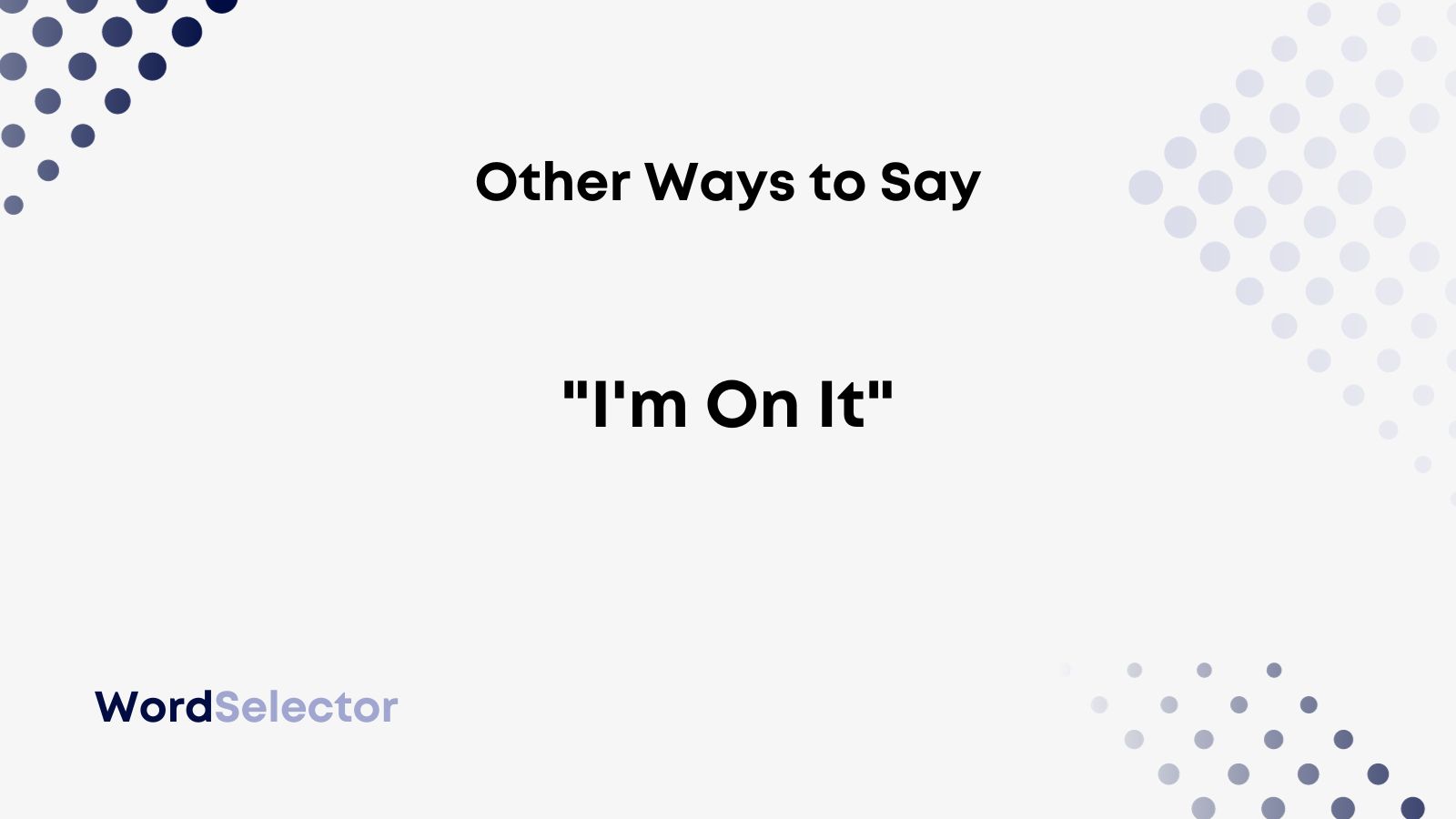Are you trying to let someone know you’re on top of a situation and willing to complete a task?
Perhaps you’re wondering how to say “I’m on it” professionally while remaining polite and formal.
Well, you’ve come to the right place for more help.
This article will show you what to say instead of “I’m on it” in a formal situation.
Other Ways to Say “I’m On It”
- I will handle this
- I’ve got this
- I’m taking care of it
- It’s in my hands
- I’m working on it
- I will work on it
- I’m addressing it
- I’ll see to it
- I’m attending to it
- Consider it done
- I’ll manage it
- I’m dealing with it
- I’m all over it
KEY TAKEAWAYS
- “I’m on it” is correct but informal, so you can’t use it in an email situation.
- “I will handle this” works really well as a formal synonym if you want to sound more professional.
- “I’ve got this” is great to use as a more informal alternative when mixing things up.
Keep reading to learn how to say “I’m on it” in an email. We’ve explored the best formal and informal synonyms to show you what options you have in your writing.
Alternatively, you can read the final section to learn whether “I’m on it” is correct. Then, you’ll know if it’s appropriate to include in your writing moving forward.
I Will Handle This (Formal)
You can use “I will handle this” as a formal way to say “I’m on it.” It’s confident and direct, letting an employer know you’re more than happy to help them with a task.
As synonyms go, this is a great way to be respectful and professional.
Your employer will thoroughly appreciate this gesture. After all, it lets them know that you’re happy to do whatever you can to assist them.
It also shows you’re keen and diligent. Both of those traits are great to take with you in the workplace, which is why they’re so vital to prove to an employer.
These email samples will show you more about how to use this phrase correctly:
Dear Mr. Tomlinson,
I will handle this task for you.
Please let me know if I should consider anything else before moving forward with it.
Yours,
Tammy Shrew
Dear Ms. Smythe,
I will handle this assignment and return it to you shortly.
You have trusted the right person to get through this.
Best regards,
Holly Bennett
I’ve Got This (Informal)
For something a bit more informal, feel free to write “I’ve got this.” This is a celebratory phrase that shows you believe in yourself and can get a task done well.
We recommend using it as another way to say “I’m on it” when emailing a coworker or sending them a chat message at work.
Either way, as long as you have a decent relationship with the recipient, this phrase works well.
After all, it keeps things friendly and direct. So, you can use it to let people know you’re the right person to ask for help.
Also, this email sample should help you to understand a bit more about it:
Hi Poppy,
Don’t worry; I’ve got this!
I knew you were going to come to me to ask for help, so I’ve prepared some things.
All the best,
Aimee Adams
Alternatively, you can review this chat message sample to find out how it works:
Oh, I’ve got this! I’m determined to show you that I’m the right person to help you through these issues.
Is It Correct to Say “I’m On It”?
It is correct to say “I’m on it.”
This is an informal way to let someone know you’re able to handle a situation. It suggests that you’re happy to help and do whatever you can to get on with something.
You can also refer to these text message samples to learn a bit more about it:
Don’t worry; I’m on it. Let me know if I need to do anything else before I complete this, though!
I’m on it. I’m always the best person to go to when you need help with jobs like this.
However, the phrase is often too informal to use in emails. You should keep it out of professional emails wherever possible!
Of course, that’s why we recommend the alternatives in this article.
So, you should also bookmark this page to remind you of the alternatives. Then, you’ll always know what to say instead of “I’m on it” when you need a more formal phrase.

